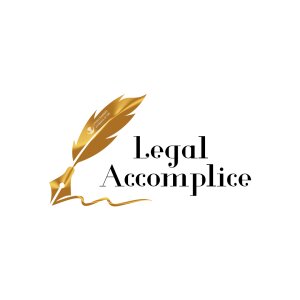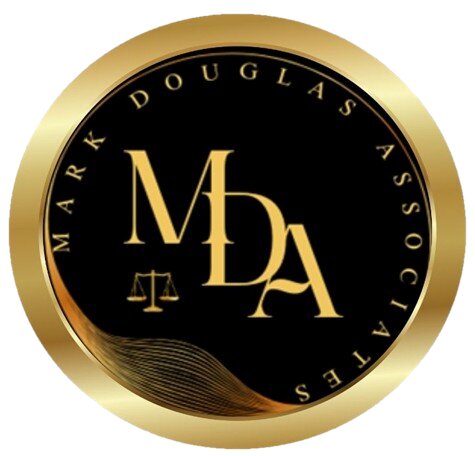Best Landlord & Tenant Lawyers in Montego Bay
Share your needs with us, get contacted by law firms.
Free. Takes 2 min.
Free Guide to Hiring a Real Estate Lawyer
List of the best lawyers in Montego Bay, Jamaica
About Landlord & Tenant Law in Montego Bay, Jamaica
The laws governing the relationship between landlords and tenants in Montego Bay, Jamaica, form a crucial part of the country's housing policy. This area of law covers various aspects including rental agreements, tenant rights, landlord obligations, and dispute resolution. Understanding these laws is vital for both landlords and tenants to ensure fair treatment and compliance with legal standards. Montego Bay, a bustling tourist hub, presents unique challenges and opportunities in the landlord and tenant sector, requiring a keen understanding of both local legislation and market dynamics.
Why You May Need a Lawyer
There are several situations where seeking legal advice in landlord and tenant matters might be necessary:
- Disputes over lease agreements or rental terms.
- Eviction processes or landlord harassment issues.
- Failure to receive rent or issues related to rent increases.
- Property maintenance and failure to make timely repairs.
- Security deposits and disputes over return amounts.
- Subletting and assignment of lease disputes.
- Understanding changes in local laws affecting rental property rights.
Legal professionals can provide guidance on rights and obligations, represent parties in hearings or mediations, and ensure compliance with legal procedures.
Local Laws Overview
Several key aspects of local laws in Montego Bay are particularly relevant to landlords and tenants:
- The Rent Restriction Act governs many rental arrangements, detailing landlord and tenant rights and obligations.
- Landlords must provide premises that are habitable and comply with health and safety regulations.
- Tenants must respect the property, pay rent timely, and adhere to the terms of their lease agreements.
- The Government of Jamaica sets rental thresholds and conditions under which rent can be increased.
- Evictions must follow legal protocols, ensuring tenants receive due notice and the opportunity to challenge evictions legally.
Frequently Asked Questions
What rights do tenants have in Montego Bay?
Tenants have the right to habitable living conditions, privacy, and protection against unfair eviction processes. They also have the right to negotiate rental terms before signing a lease.
Can a landlord increase rent at any time?
No, rent increases are governed by the Rent Restriction Act and must adhere to specific guidelines. Notice and justification are typically required for rent increases.
What should I do if my landlord is not making necessary repairs?
Tenants should formally request repairs in writing. If the landlord fails to respond, tenants can seek legal advice or file a complaint with relevant authorities.
How much notice is required for eviction?
The notice period can vary depending on the reason for eviction. For example, non-payment of rent may require a shorter period than eviction for other lease violations.
Is subletting allowed?
Subletting generally requires the landlord's consent, which should ideally be outlined in the initial lease agreement.
What happens to my security deposit?
Security deposits are returned to tenants at the end of the lease term, provided there are no damages or outstanding rent. Deductions should be itemized and justified.
How can disputes between landlords and tenants be resolved?
Disputes can often be resolved through mediation services provided by local legal aid or directly through the Rent Assessment Board.
Am I responsible for paying utilities?
This responsibility should be outlined in your lease agreement. Tenants should clarify utility payments and responsibilities before signing a lease.
Can a landlord enter the premises without notice?
Landlords must provide reasonable notice before entering the tenant's dwelling, except in emergencies or to perform agreed-upon repairs.
What should be included in a rental agreement?
A rental agreement should include terms of tenancy, rent amount, maintenance responsibilities, rules regarding pets, and procedures for dispute resolution.
Additional Resources
For more information or assistance, consider reaching out to the following resources:
- The Rent Assessment Board: Responsible for handling rental disputes.
- Legal Aid Clinics: Provide free or low-cost legal services.
- Ministry of Housing: Offers detailed guidelines and support on housing rights and laws.
Next Steps
If you need legal assistance in landlord and tenant matters, consider the following steps:
- Gather all relevant documents, including lease agreements, correspondence, and evidence of disputes.
- Reach out to a reliable attorney specializing in landlord and tenant laws.
- Contact local legal aid services if you have financial constraints.
- Utilize mediation services to attempt a resolution before pursuing formal legal action.
Lawzana helps you find the best lawyers and law firms in Montego Bay through a curated and pre-screened list of qualified legal professionals. Our platform offers rankings and detailed profiles of attorneys and law firms, allowing you to compare based on practice areas, including Landlord & Tenant, experience, and client feedback.
Each profile includes a description of the firm's areas of practice, client reviews, team members and partners, year of establishment, spoken languages, office locations, contact information, social media presence, and any published articles or resources. Most firms on our platform speak English and are experienced in both local and international legal matters.
Get a quote from top-rated law firms in Montego Bay, Jamaica — quickly, securely, and without unnecessary hassle.
Disclaimer:
The information provided on this page is for general informational purposes only and does not constitute legal advice. While we strive to ensure the accuracy and relevance of the content, legal information may change over time, and interpretations of the law can vary. You should always consult with a qualified legal professional for advice specific to your situation.
We disclaim all liability for actions taken or not taken based on the content of this page. If you believe any information is incorrect or outdated, please contact us, and we will review and update it where appropriate.













